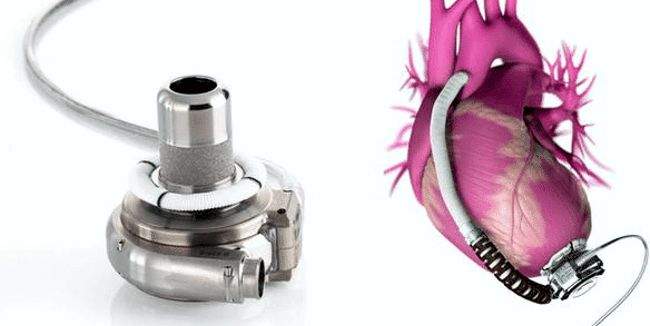Myocarditis is an inflammatory condition of the heart muscle (myocardium), often caused by viral infections, autoimmune diseases, or exposure to certain toxins. While the severity of myocarditis can vary significantly, mild cases of myocarditis are relatively common. Patients diagnosed with mild myocarditis often have a pressing question: “Does mild myocarditis go away?” This article delves into the causes, symptoms, diagnosis, treatment, and prognosis of mild myocarditis, offering a comprehensive overview of what patients can expect in terms of recovery.
Understanding Myocarditis
Myocarditis is characterized by inflammation of the myocardium, the muscular layer of the heart wall. This inflammation can disrupt the heart’s ability to pump blood effectively, leading to a variety of symptoms and potential complications.
Myocarditis can be caused by a range of factors, including:
Viral Infections: Viruses such as Coxsackievirus, adenovirus, and SARS-CoV-2 (the virus responsible for COVID-19) are common culprits.
Bacterial Infections: Less commonly, bacterial infections like Lyme disease can cause myocarditis.
Autoimmune Diseases: Conditions like lupus and rheumatoid arthritis can lead to myocarditis.
Toxins: Exposure to certain drugs, alcohol, and environmental toxins can result in myocarditis.
Unknown Causes: In some cases, the exact cause of myocarditis remains unidentified.
SEE ALSO: How Is Giant Cell Myocarditis Diagnosed?
Symptoms of Mild Myocarditis
Mild myocarditis may present with subtle symptoms that can be easily overlooked or mistaken for other conditions.
Common symptoms include:
Chest Pain: A common symptom, often described as sharp or stabbing, that can mimic a heart attack.
Fatigue: Persistent tiredness that does not improve with rest.
Shortness of Breath: Difficulty breathing, especially during physical activity.
Palpitations: Sensations of irregular or rapid heartbeats.
Fainting: In severe cases, fainting or near-fainting episodes.
Given the nonspecific nature of these symptoms, mild myocarditis can be challenging to diagnose based solely on clinical presentation.
Diagnosis of Mild Myocarditis
Diagnosing myocarditis typically involves a combination of patient history, physical examination, and various diagnostic tests:
Electrocardiogram (ECG): This test records the electrical activity of the heart and can detect abnormalities indicative of myocarditis.
Echocardiogram: An ultrasound of the heart that can reveal structural and functional abnormalities.
Cardiac MRI: This imaging technique provides detailed pictures of the heart’s structure and can identify areas of inflammation.
Blood Tests: Elevated levels of cardiac enzymes (such as troponin) and markers of inflammation (like C-reactive protein) can suggest myocarditis.
Endomyocardial Biopsy: In rare cases, a small sample of heart tissue may be taken for analysis to confirm the diagnosis.
Treatment of Mild Myocarditis
The treatment approach for mild myocarditis typically focuses on managing symptoms and addressing the underlying cause of the inflammation. Treatment options may include:
Rest: Patients are often advised to limit physical activity to reduce the strain on the heart.
Medications: Anti-inflammatory drugs, such as nonsteroidal anti-inflammatory drugs (NSAIDs), can help reduce inflammation. In some cases, corticosteroids or other immunosuppressive medications may be necessary.
Antiviral or Antibiotic Therapy: If a specific infection is identified, targeted treatment with antiviral or antibiotic medications may be required.
Heart Medications: Drugs such as beta-blockers or ACE inhibitors may be prescribed to help manage symptoms like palpitations or heart failure.
Prognosis: Does Mild Myocarditis Go Away?
The prognosis for mild myocarditis is generally favorable, with many patients experiencing a full recovery. The answer to the question, “Does mild myocarditis go away?” is often “yes,” especially with appropriate treatment and management.
However, the timeline for recovery can vary depending on several factors:
Cause of Myocarditis: The underlying cause of the inflammation plays a significant role in recovery. Viral myocarditis, for instance, often resolves as the body clears the infection.
Patient’s Overall Health: Individuals with strong immune systems and no underlying health conditions are more likely to recover fully.
Promptness of Treatment: Early diagnosis and appropriate treatment can significantly improve the chances of a full recovery.
Severity of Symptoms: Patients with mild symptoms are more likely to recover quickly compared to those with more severe manifestations.
Potential Complications
While the prognosis for mild myocarditis is generally positive, it is essential to be aware of potential complications that can arise if the condition is not adequately managed. These complications may include:
Chronic Heart Failure: In some cases, myocarditis can lead to long-term damage to the heart muscle, resulting in chronic heart failure.
Arrhythmias: Inflammation can disrupt the heart’s electrical system, leading to irregular heart rhythms (arrhythmias) that may require ongoing management.
Dilated Cardiomyopathy: Severe or prolonged inflammation can weaken the heart muscle, causing it to enlarge and function poorly.
Sudden Cardiac Death: Although rare, severe myocarditis can lead to sudden cardiac arrest and death, emphasizing the importance of prompt and effective treatment.
Long-Term Management And Follow-Up
Patients recovering from mild myocarditis should undergo regular follow-up with their healthcare provider to monitor their heart health and detect any potential complications early. Long-term management strategies may include:
Lifestyle Modifications: Adopting a heart-healthy lifestyle, including a balanced diet, regular exercise (once cleared by a healthcare provider), and avoiding alcohol and tobacco, can support recovery and overall heart health.
Ongoing Medication: Some patients may need to continue taking medications to manage symptoms or prevent recurrence of inflammation.
Regular Monitoring: Periodic tests such as echocardiograms, ECGs, and blood tests can help monitor heart function and detect any changes that may require intervention.
Conclusion
In summary, mild myocarditis often resolves with appropriate treatment and management, with many patients experiencing a full recovery. The prognosis is generally favorable, especially when the condition is promptly diagnosed and treated. However, it is crucial for patients to adhere to their treatment plan, follow up regularly with their healthcare provider, and adopt a heart-healthy lifestyle to support recovery and prevent potential complications.
For individuals diagnosed with mild myocarditis, understanding the condition, recognizing the importance of early intervention, and committing to long-term heart health are key steps towards a positive outcome. While mild myocarditis can indeed go away, ongoing vigilance and proactive care are essential to ensure the heart remains healthy and functions optimally.

